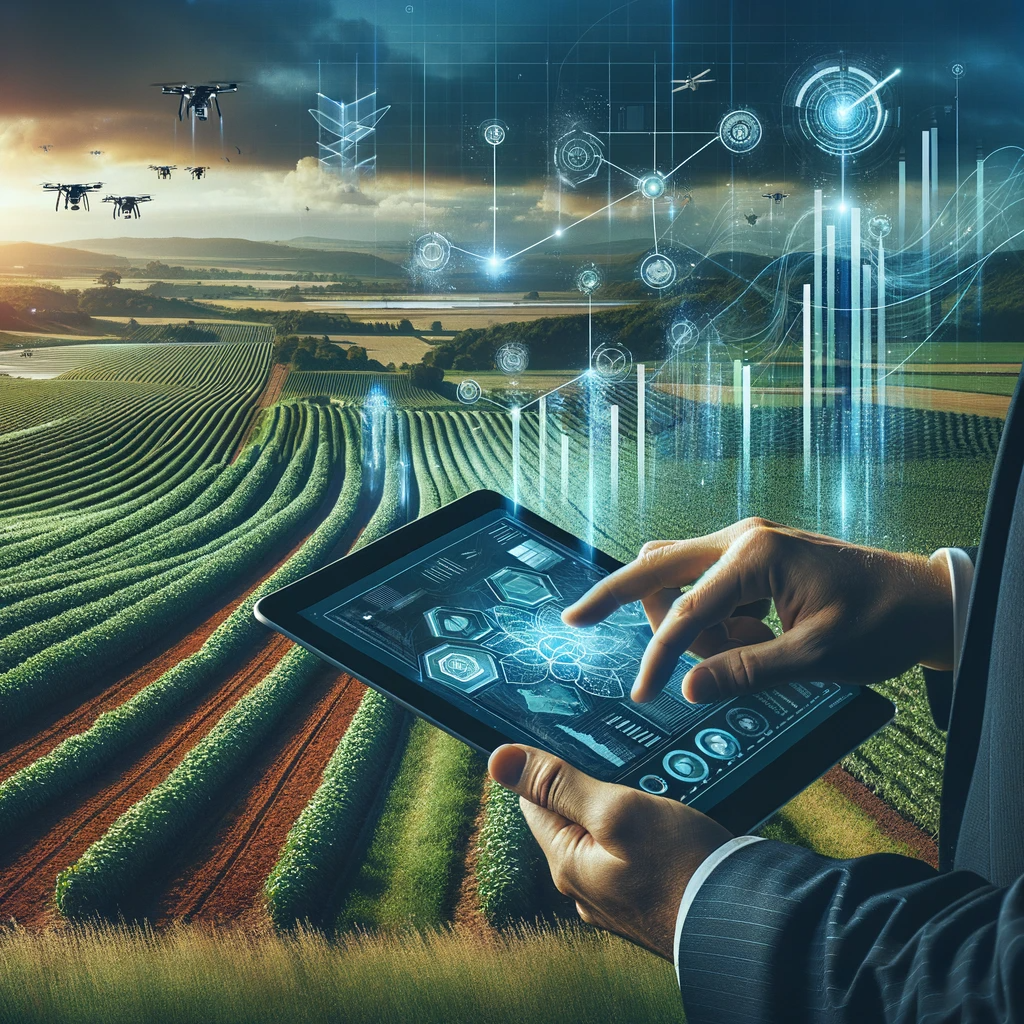AI Revolutionizes Farmland Valuation: A New Era in Agricultural Real Estate

Artificial intelligence (AI) is redefining the agricultural landscape, particularly in the realm of farmland valuation. This simplifies evaluating farmland worth and identifying potential buyers, marking a significant shift in how farmland data is analyzed and utilized to date.
AI's role in transforming farmland evaluation cannot be overstated. With vast amounts of data available, ranging from sales prices to soil quality and crop history, AI tools efficiently process and analyse this information. This not only provides more accurate valuations but also assists in pinpointing potential buyers based on historical purchase patterns.
Industry leaders like David Whitaker, owner of Whitaker Marketing Group, are leveraging AI to enhance their real estate services. By using AI to sift through curated sales data, Whitaker can offer clients data-driven estimates on land values, adding a layer of confidence and security in their investment decisions.
However, the journey towards fully integrating AI in farmland valuation is still ongoing. Many records in the agricultural real estate sector remain undigitized, posing a challenge to the full utilisation of AI. Despite these hurdles, efforts are underway to digitize transactions, setting the stage for broader AI application in the future.
Companies like Peoples Co. are exploring AI for marketing and creating legal documents, demonstrating the technology's growing versatility. The integration of AI, like ChatGPT and alternative generative models in creating marketing materials and legal drafts is a testament to its potential in enhancing operational efficiency.
Yet, the journey to a fully AI-driven valuation system is not without its challenges. Experts like Carter Malloy, founder and CEO of Acres, acknowledge that while AI can significantly aid in data analysis, the complexity of land valuation still requires human expertise, especially when it comes to qualitative factors that influence land value.
The future, however, is bright and promising. Farmers Business Network (FBN) is on the verge of releasing an AI-based farmland valuation tool, indicating the industry's readiness to embrace AI for more sophisticated applications. FBN's AcreVision and its upcoming AI tool represent significant strides in this direction.

In conclusion, the AI revolution in farmland valuation is just beginning. With continuous technological advancements and a growing emphasis on data digitization, AI is poised to play an increasingly vital role in agricultural real estate. The transition from traditional methods to AI-driven solutions mirrors the agricultural sector's broader evolution, underscoring the importance of staying open to new technologies. As AI continues to evolve, it promises to bring more transparency, efficiency, and accuracy to the valuation of farmland, benefiting both professionals and clients in the industry.
Useful References
Here are some relevant URLs that provide information about the application of AI in agricultural real estate valuation and the broader context of AI in agriculture and real estate industries:
- "Generative AI can change real estate, but the industry must change too" from McKinsey: This article by McKinsey Global Institute highlights the potential impact of generative AI on the real estate industry, including valuation enhancements.
- "AI in Agriculture Market - Companies, Research & Trends" from Mordor Intelligence: This report provides insights into the growth and trends in the AI agriculture market, including key companies involved.
- "Impacts and applications of AI in real estate" from CBRE: This article discusses how AI is transforming the real estate industry and the need for professionals to adapt to this technology.
- "AI in Agriculture: Challenges, Benefits, and Use Cases" from Intellias: This article covers the application of AI in agriculture, providing real-time crop insights and its market growth projections.
- "The Application of Artificial Intelligence in Real Estate Valuation" from Springer: This academic publication explores how AI, including artificial neural networks and machine vision, is used in real estate valuation.




